How can artificial intelligence and digital tools support our mental health?
Join us for the Artificial Intelligence in Mental Health Summit, 1st – 2nd July in Berlin!
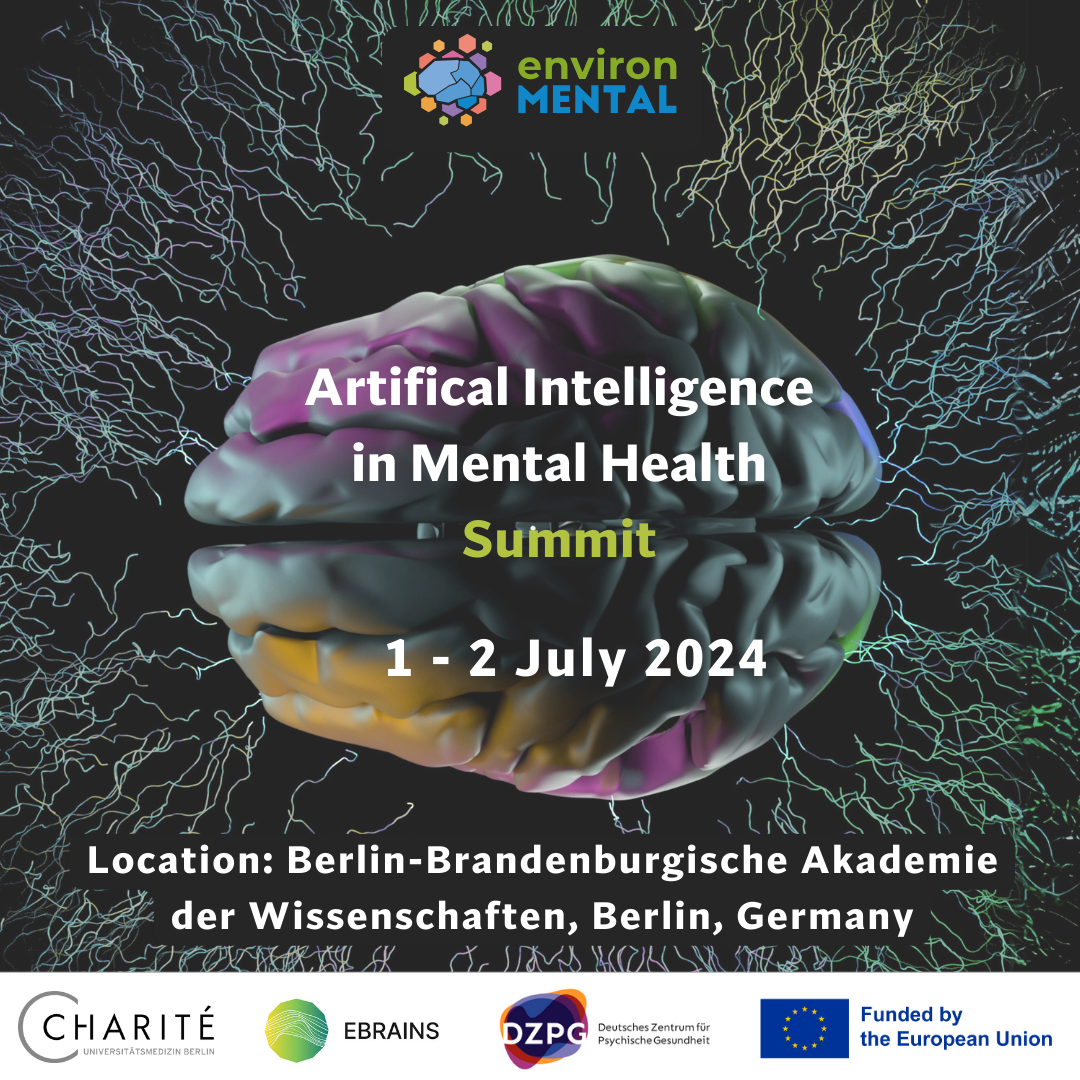
Join us for a two-day free event examining the role played by artificial intelligence and digital tools in understanding and supporting mental health. Hosted by the environMENTAL Consortium, German Centre for Mental Health (DZPG), EBRAINS and Fudan University this event brings together experts within the field of mental health research, practice and policy. This hybrid event will take place at the Berlin-Brandenburgische Akademie der Wissenschaften next to the Gendarmenmarkt, Berlin.
Event Details:
Event: Artificial Intelligence in Mental Health Summit, Berlin
Date: 1. – 2. July 2024
Location: Berlin-Brandenburgische Akademie der Wissenschaften
Jägerstraße 22/23, 10117 Berlin
Organizers: environMENTAL consortium
German Centre for Mental Health (DZPG)
Online registration for both days is still open:
For further information please contact:
Dr. Esther Hitchen – Project Manager, Charité – Universitätsmedizin Berlin
Vanessa Köhler – Project Manager, concentris
Speakers:
Prof. Timo Dickscheid: Heinrich-Heine University Düsseldorf & Institute of Neuroscience and Medicine Research Centre, Jülich
Prof. Roland Eils: BIH, Charité – Universitätsmedizin, Berlin
Prof. Jianfeng Feng: ISTBI, Fudan University, Shanghai
Prof. Andreas Heinz: Charité – Universitätsmedizin, Berlin
Prof. Viktor Jirsa: Aix Marseille Université, Marseille
Dr. Jakob Kaminski: Charité – Universitätsmedizin, Berlin
Prof. Christine Knaevelsruth: Freie University Berlin, Berlin
Minister Prof. Karl Lauterbach: Federal Ministry of Health, Berlin
Prof. Frauke Nees: University Medical Centre Schleswig-Holstein, Kiel University, Kiel
Prof. Stefano Panzeri: University Medical Centre Hamburg-Eppendorf (UKE), Hamburg
Prof. Ulrich Reininghaus: Central Institute of Mental Health, Mannheim
Prof. Petra Ritter: Charité – Universitätsmedizin, Berlin
Prof. Gunter Schumann: PONS, Charité – Universitätsmedizin, Berlin & Fudan University, Shanghai
Prof. Mel Slater: University of Barcelona, Barcelona
Dr. Johannes Wolf: Ludwig Maximilian University, Munich
Dr. Yunman Xia: Fudan University, Shanghai
Dr. Hu Zhou: Fudan University, Shanghai
Agenda:
1. July 2024 (Leibniz-Saal)
Part 1: Computer brain models, paradigms, training and infrastructure.
The development of computer brain models promises a breakthrough in the understanding and modelling of brain mechanisms underlying mental health and illness. To maximize utility of these models, suitable paradigms and training with relevant biological and environmental data are needed. Here we present the computer brain models Virtual Brain Twins and Digital Twin Brain, describe their characteristics, similarities and differences in design and application (Jirsa, Feng). We shall present a behaviourally relevant paradigm for computer brain modelling, the NP factor (Xia). To increase the validity of computer brain models, training with relevant ground truth data is critical. We shall present suitable resources for training with biological and environmental data (Dickscheid, Schumann) and discuss computational approaches to develop appropriate training models (Panzeri). We will also report on the ongoing efforts to employ machine learning for integration of data from clinical care, health records and research data for disease risk stratification (Eils). The final discussion will focus on strategies to integrate existing resources to optimize validity of computer brain models. Finally, we will discuss the opportunities and risks presented by this technology.
* All times indicated in the agenda refer to CEST (Central European Summer Time)
Welcome Address
9:30 –
Welcome (Andreas Heinz, Charité - Universitätsmedizin Berlin and Gunter Schumann, Fudan University/Charité - Universitätsmedizin Berlin)

Prof. Andreas Heinz, Charité – Universitätsmedizin Berlin, Berlin
Andreas Heinz is Professor of Psychiatry and Director of the Department of Psychiatry and Psychotherapy at Charité – Universitätsmedizin Berlin, Campus Mitte, Germany. He studied medicine, philosophy, and anthropology at Ruhr-Universität Bochum, Freie Universität Berlin, and Howard University, Washington, D.C. He received his doctorate from Ruhr-Universität Bochum in 1988 and from the Institute of Philosophy at the University of Potsdam in 2013. He habilitated in psychiatry and psychotherapy in 1998 and in philosophy in 2022. His research focuses on learning mechanisms in mental illness and the impact of social exclusion on mental health.
He is a member of clinical and scientific committees, including the Ethics Advisory Board of the World Psychiatry Association, the National Academy of Science Leopoldina, and the Academy for Sciences and Literature in Mainz. Between 2019 and 2021, Andreas Heinz was president of the German Society for Psychiatry, Psychotherapy Psychosomatics and Neurology (DGPPN). Currently, he is the speaker of the German Center for Mental Health (DZPG) funded by the Federal Ministry of Education and Research (BMBF) and head of other DFG and BMBF funded projects.

Prof. Gunter Schumann, PONS, Charité – Universitätsmedizin Berlin, Berlin & Fudan University, Shanghai
Prof. Gunter Schumann MD PhD, Distinguished Professor and Director, Centre for Population Neuroscience and Stratified Medicine (PONS) at ISTBI, Fudan University, Shanghai and Charité – Universitätsmedizin Berlin advances research in population neuroscience and precision medicine in Europe and globally. Professor Schumann conceived and is coordinating the environMENTAL Horizon Europe project of 25 partnering institutions aimed at reducing the impact of major environmental challenges on mental health (www.environmental-project.org). He leads the IMAGEN project, a groundbreaking longitudinal imaging genetics study (www.imgaen-project.org), initially funded by the European Commission, the STRATIFY study, funded by the European Research Council (ERC), and the Indian cVEDA study (www.cveda-project.org). He directs the Zhanghjiang International Biobank at ISTBI, Fudan University. He is a recipient of prestigious awards, including an Advanced Grant of the ERC, a Humboldt Prize of the German Alexander von Humboldt Foundation as well as several awards of the PR China. He has attracted over 40 million Euro in grant funding.
9:45 –
Data-driven, human-centered: Germany's AI in all policies approach for healthcare (Karl Lauterbach, Federal Ministry of Health)

Minister Prof. Karl Lauterbach, Federal Ministry of Health (BMG), Berlin
Professor Dr. Karl Lauterbach has been the German Federal Minister for Health since December 2021. Lauterbach completed his medical doctorate in 1990 at the Institute for Nuclear Medicine at Jülich Research Centre. In 1995, he completed his Doctorate in Health Policy and Management at the Harvard School of Public Health. Lauterbach’s research expertise includes health economics, health politics, and primary and secondary prevention of chronic illnesses, in particular disease management of diabetes mellitus, hypertension, COPD and hypercholesterolaemia. In 1998 Prof. Lauterbach became Director of the Institute for Health Economics and Clinical Epidemiology, Faculty of Medicine at the University of Cologne. Lauterbach has been a member of the Bundestag since 2005, on leave as Director of the Institute of Health Economics and Clinical Epidemiology. Since 2008 Lauterbach has been Adjunct Professor at the Department of Health Policy and Management at the Harvard School of Public Health.
10:00 – Q&A Session
Computer Brain Models: State of the art, promises and challenges
10:15 –
Virtual Brain Twins for Medicine (Viktor Jirsa, Aix Marseille Université, Marseille)
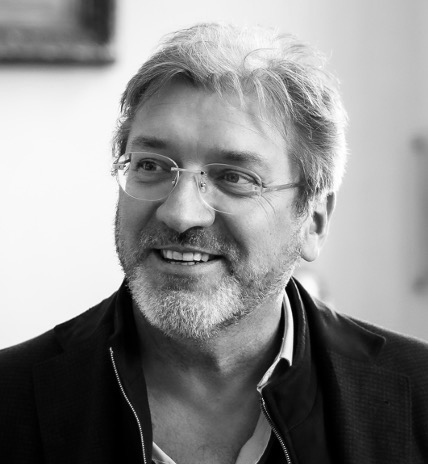
Prof. Viktor Jirsa, Aix Marseille Université, Marseille
Viktor Jirsa is Director of the Inserm Institut de Neurosciences des Systèmes at Aix-Marseille-Université in Marseille, France. Dr. Jirsa received his PhD in 1996 in Theoretical Physics and has since then contributed to the field of Theoretical Neuroscience, in particular through the development of large-scale brain network models based on realistic connectivity. His work has been foundational for network science in brain medicine and the use of personalized virtual brain models in epilepsy. He is Scientific Director of the clinical trial EPINOV, evaluating the use of virtual brain technology in epilepsy surgery. Dr. Jirsa serves as Chief Science Officer of the European digital neuroscience infrastructure EBRAINS (ebrains.eu) and lead investigator in the Virtual Brain Twin Project (www.virtualbraintwin.eu/). Dr. Jirsa has been awarded several international prizes for his research including the first HBP Innovation prize (2021) and Grand Prix de Recherche en Provence (2018) and has published more than 160 scientific articles.
10:45 – COFFEE BREAK
11:15 –
Digital Twin Brain: simulating and assimilating the human brain with applications (Jianfeng Feng, Fudan University)
We simulate the human brain at the scale of up to 86 billion neurons with 100 trillion neural synapses: the digital twin brain (DTB), which mimics certain aspects of its biological counterpart both in the resting state and in action. A novel partition layout of neurons to 14,012 GPUs (57.39 million cores) and a two-level routing scheme between GPUs to implement simulations and a hierarchical mesoscale data assimilation method was developed capable of constructing more than trillions of parameters from the estimated hyper-parameters. The constructed DTB can reproduce blood-oxygen-level-dependent (BOLD) signals of its resting-state biological counterpart with a very high correlation (> 0.9). We enable the DTB to interact with its environment by demonstrating some potential applications in visual and auditory task. The result demonstrates the feasibility of implementing a digital twin of the human brain, overcoming key computational, mathematical and biological challenges and the broad range of applications of the DTB.

Prof. Jianfeng Feng, ISTBI, Fudan University, Shanghai
Jianfeng Feng is the Professor of Computer Science at Warwick University, the chair professor of Shanghai National Centre for Mathematic Sciences, the Dean of Institute of Science and Technology for Brain-Inspired Intelligence and the School of Data Science in Fudan University.Feng has spent much of his career working on developing new mathematical, statistical and computational theories and methods to meet the challenges raised in neuroscience and mental health researches. He has made considerable contributions on modelling single neurons and neuronal networks, brain-inspired machine learning algorithms, stochastic control and causality analysis with many publications on Nature Medicine, Nature Human Behaviours, Nature Aging, Nature Mental Health etc. His recent research interests are mainly in exploring human brain based upon data and experiments, carrying out the simulation of the entire human brain (86B neurons), monkey brain and zebrafish brain, and developing brain-inspired AI algorithms for applications in automatic car and medicine. He was awarded the prestigious Royal Society Wolfson Research Merit Award, and invited to deliver 2019 Paykel Lecture at the Cambridge University. In 2023, he was awarded Humboldt Research Award.
11:45 –
Simulation and Manipulation of Task-state Brain Functional Network Linking to Behavioral Symptoms: A use case for brain-computer simulations in the Digital Twin Brain (DTB) (Yunman Xia, Fudan University)
Numerous mental illnesses are linked to deficiencies in reward and execution control processes. However, the neural mechanisms underlying brain functional abnormalities in reward processing and execution control remain largely elusive. In this study, based on the computational brain models, we simulated and manipulated specific brain functional connectivity (FC) patterns during reward processing and execution control tasks, which are associated with both externalizing and internalizing behavioral symptoms. Specifically, we first identified transdiagnostic-associated FC pattern, utilizing the task-state fMRI data and behavioral symptoms obtained from the IMAGEN follow-up 2 and STRATIFY-ESTRA datasets. Subsequently, we developed computational brain models at the neuronal scale for representative healthy individuals and those with mental illnesses, creating digital twin brains capable of simulating transdiagnostic-associated FC patterns. Finally, we manipulated diseased brain models to transition from a diseased state to a normal state, implying a potential causal relationship between biological parameters (such as chemical neurotransmitters) and transdiagnostic-associated FC patterns. These findings offer valuable insights into the shared neural mechanisms and clinical interventions for psychiatric comorbidity.

Dr. Yunman Xia, Fudan University, Shanghai
Yunman XIA is a postdoctoral fellow, collaborating with Prof. Gunter Schumann, of the Center for Population Neuroscience and Stratified Medicine (PONS) at the Institute of Science and Technology for Brain-inspired Intelligence (ISTBI) at Fudan University. She obtained her Ph.D. degree in cognitive neuroscience at the IDG/McGovern Institute for Brain Research, Beijing Normal University. She has published 9 papers as the first/co-author in SCI journals such as Science Bulletin, iScience, Cerebral Cortex, etc., which were cited more than 360 times. Her current research interests include leveraging the large-cohort multimodal neuroimaging data to investigate the developmental trajectory of human brain development, genetic and environmental risk factors for neurodevelopment, and computational brain modeling for human brain functional activity.
12:15 – Q&A Session
12.30 – LUNCH
Training Computer Brains
14:00 –
Generating training data for computer brain models in the environMENTAL project: Reducing the impact of major environmental challenges on mental health (Gunter Schumann, Fudan University/Charité)
environMENTAL is a Horizon Europe-funded project comprising 25 partners from Europe, the US and China that investigates how some of the greatest global environmental challenges, climate change, urbanisation, pollution and psychosocial stress affect brain health during the lifespan (www.environmental-project.org). Leveraging federated cohort data of over 1 million European citizens and patients enriched with deep phenotyping data form large scale behavioural neuroimaging cohorts, we will identify brain mechanisms related to environmental adversity underlying mental illness. Enrichment will be carried out by linking population and patient data via geo-location to environmental data derived from remote sensing satellite measures, climate models as well as digital health applications. As a result, the environMENTAL project will develop a comprehensive dataset of environmental profiles related to brain and mental health. In this presentation, I will describe the data generated, show how their analysis can inform our understanding of the effects of environment on brain and mental health and propose their use as training data for computer brain models. Knowledge thus gained will be applied to help uncover molecular mechanisms and causal pathways using virtual brain simulations. Ultimately, this work will provide a data space for individual brain simulations that incorporates the genetic and environmental influences on brain systems and psychopathology and behaviour, across the lifespan and spectrum of functioning, which we will apply to develop risk biomarkers and stratification markers for different disease mechanisms.

Prof. Gunter Schumann, PONS, Charité – Universitätsmedizin Berlin, Berlin & Fudan University, Shanghai
Prof. Gunter Schumann MD PhD, Distinguished Professor and Director, Centre for Population Neuroscience and Stratified Medicine (PONS) at ISTBI, Fudan University, Shanghai and Charité – Universitätsmedizin Berlin advances research in population neuroscience and precision medicine in Europe and globally. Professor Schumann conceived and is coordinating the environMENTAL Horizon Europe project of 25 partnering institutions aimed at reducing the impact of major environmental challenges on mental health (www.environmental-project.org). He leads the IMAGEN project, a groundbreaking longitudinal imaging genetics study (www.imgaen-project.org), initially funded by the European Commission, the STRATIFY study, funded by the European Research Council (ERC), and the Indian cVEDA study (www.cveda-project.org). He directs the Zhanghjiang International Biobank at ISTBI, Fudan University. He is a recipient of prestigious awards, including an Advanced Grant of the ERC, a Humboldt Prize of the German Alexander von Humboldt Foundation as well as several awards of the PR China. He has attracted over 40 million Euro in grant funding.
14:30 –
Making the multiscale organization of the human brain accessible to computational workflows (Timo Dickscheid, Heinrich-Heine University/FZ Juelich)
Building realistic computational models of the brain requires empirical data for defining appropriate anatomical constraints, learning model parameters, and validating model outputs. The information required to capture relevant aspects of brain organization spans across an extensive range of scales and modalities, and typically originates from a plethora of resources. To make multimodal and multidimensional measures of brain organization accessible for computational neuroscience, they need to be integrated into a common reference framework, and exposed via efficient and interoperable programming libraries. This talk will present our work on building a multilevel atlas of the human brain, and making it accessible for different neuroscientific workflows through the siibratoolsuite, siibra provides streamlined access to brain reference templates at different spatial scales, complementary parcellation maps, and a wide range of multimodal data features. It links macroanatomical concepts and their inter-subject variability with measurements of the microstructural composition and intrinsic variance of brain regions, building on cytoarchitectonic maps as a reference, and integrating the BigBrain model as microscopic reference template. The tool suite includes a web-based 3D viewer (siibra-explorer) and a Python library (siibra-python) to support a broad range of use cases. It makes use of EBRAINS as a data sharing platform and cloud infrastructure, and implements interfaces to other neuroscience resources.

Prof. Timo Dickscheid, Heinrich-Heine University Düsseldorf & Institute of Neuroscience and Medicine Research Centre, Jülich
Timo Dickscheid is a Professor for Microscopic Image Analysis at Heinrich-Heine University Düsseldorf, and head of the “Big Data Analytics” group at the Institute of Neuroscience and Medicine (INM-1), Forschungszentrum Jülich, Germany. He is a computer scientist by training and earned his PhD in the field of Computer Vision and Photogrammetry at the University of Bonn in 2011. Dickscheid joined Forschungszentrum Jülich as a post-doc in 2010 to develop image analysis methods for microscopic imaging. After accepting a position as the head of Information Technology at the German Federal Institute of Hydrology in Koblenz in 2012, he returned to Jülich in 2014 to setup his own research group. Aiming to build a cellular resolution multimodal model of the human brain, his work addresses distributed data management for high throughput imaging, AI methods for large-scale biomedical image analysis, and software interfaces for working with very large image data. Dickscheid leads the development of brain atlas services for the European research infrastructure EBRAINS, and co-leads the “Helmholtz AI” unit for the research field “Information” at Forschungszentrum Jülich.
15:00 –
Estimating realistic neural parameters for training computer brains (Stefano Panzeri, University Medical Centre Hamburg-Eppendorf)
Computer brains are computer models that implement the equations of interactions between neurons or networks of neurons in the brain. However, training of these models to emulate or understand the function of the human brain is usually performed on data that do not record neural activity directly, but rather use measures of activity from the brain (such as EEG or fMRI) that are coarse (that is, lacking the resolution of neurons and their interactions) and/or indirect (that is, they capture features indirectly related to neural activity rather than neural activity itself). To better train computer brains that emulate real brains, it would be important to be able estimate parameters of microscopic neural activity from the EEG or fMRI recordings. We present validated methods to estimate such parameters from data. The methods are based on developing highly realistic yet computationally tractable biophysical models of neural networks that generate realistic EEG and fMRI signals; using these models to train machine learning methods that infer neural parameters form EEG/fMRI; and we validate them with causal manipulations of neural activity. Here we present these methodological advances and their implications for better training of computer brains.
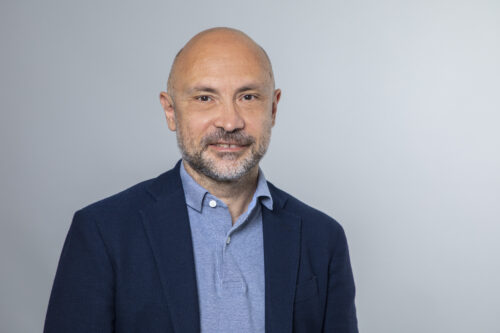
Prof. Stefano Panzeri, University Medical Centre Hamburg-Eppendorf (UKE), Hamburg
Stefano Panzeri is a computational neuroscientist, researching at the interface between theory and experiment. His main research interest is understanding the principles of cortical information processing. He pursues this interest by developing new quantitative data analysis techniques based on the principles of Information Theory and by developing computational models of neural network function.
Stefano received a Laurea in Physics from the University of Torino, and a PhD in Computational Neuroscience from SISSA, Trieste, Italy. He has held personal research awards in both theoretical physics and computational neuroscience, including an INFN junior Fellowship in Theoretical Physics at Turin University, an EU Marie Curie postdoctoral Fellowship at the University of Oxford, and an MRC-funded Junior Group Leader position at the University of Newcastle. He has held tenured Faculty positions as assistant, associate and full professor at the Universities of Manchester and Glasgow. He has been visiting scientist at the Max Planck Institute for Biological Cybernetics and at Harvard Medical School for several years. He served as Coordinator of the Center for Neuroscience and Cognitive Systems of IIT. He also served as Deputy Chair of the UK Medical Research Council Panel for fellowships in Bioinformatics and Neuroinformatics. He currently works as Full Professor and Director of the Institute for Neural Information Processing at University Medical Center Hamburg-Eppendorf (UKE), Hamburg, Germany.
15:30 – Q&A Session
16:00 – COFFEE BREAK
Machine Learning
16:30 –
Data save lives: Deep learning from health data (Roland Eils, BIH Charité - Universitätsmedizin Berlin)
In primary prevention, risk stratification is critical for the early identification of high-risk individuals. Beyond established clinical predictors, new biomarkers are regularly considered for clinical adoption. However, adoption into clinical practice not only requires a high additional prognostic value, but also practicability and affordability of predictors. Here, I will report on our ongoing efforts to employ machine learning for integration of data from clinical care, health records and research data for disease risk stratification. I will demonstrate the potential of such data integration efforts for almost all common conditions including cancers, metabolic, vascular, respiratory, and mental diseases.
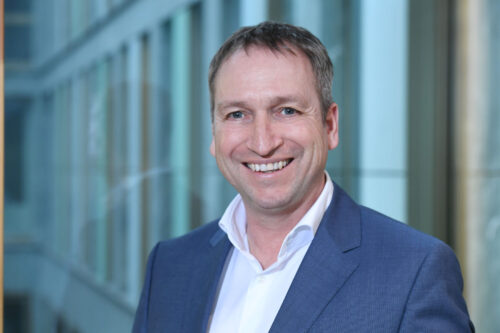
Prof. Roland Eils, BIH, Charité – Universitätsmedizin Berlin, Berlin
Prof. Dr. Roland Eils is founding director of the BIH Digital Health Center at Charité ̶ Universitätsmedizin Berlin and director of the Health Data Science unit at the Medical Faculty of Heidelberg University. Before, he was founding and managing director of Heidelberg University’s Systems Biology center BioQuant and Head of Division “Theoretical Bioinformatics” at the DKFZ in Heidelberg. His group has delivered significant contributions to the field of cancer genomics systems biology and digital health. Since 2017 Roland Eils has been member of the Organizing Committee of the Human Cell Atlas initiative and Coordinator of the HiGHmed Consortium. Since 2021, he has coordinated the HEALTH-X dataLOFT („Legitimierter, Offener und Föderierter Gesundheitsdatenraum in GAIA-X“) consortium. He has published over 700 publications cited over 65000 times resulting in an h-index of 112 (source: google scholar, last visited 2023-05-15).
17:00 –
Panel Discussion: Towards a collaborative effort to train computer brain models
Speakers of Day 1:
- Prof. Andreas Heinz, Charité – Universitätsmedizin Berlin, Berlin
- Prof. Gunter Schumann, PONS, Charité – Universitätsmedizin Berlin, Berlin & Fudan University, Shanghai
- Prof. Viktor Jirsa, Aix Marseille Université, Marseille
- Prof. Jianfeng Feng, ISTBI, Fudan University, Shanghai
- Dr. Yunman Xia, Fudan University, Shanghai
- Prof. Timo Dickscheid, Heinrich-Heine University Düsseldorf & Institute of Neuroscience and Medicine Research Centre, Jülich
- Prof. Stefano Panzeri, University Medical Centre Hamburg-Eppendorf (UKE), Hamburg
- Prof. Roland Eils, BIH, Charité – Universitätsmedizin Berlin, Berlin
17:30 – ADJOURN
2. July 2024 (Einstein-Saal)
Part 2: Clinical application of AI and digital tools in brain health.
We present the eBRAIN-Health project, which aims to develop a decentralized platform capable of simulating aspects of brain activity (Ritter). We provide an overview and explore areas for collaboration between initiatives of the German Centre for Mental Health (DZPG), the Berlin Institute of Health (BIH) and the European environMENTAL consortium. These initiatives cover diagnostic applications as well as approaches for intervention. The event aims to facilitate coordinated strategies for development, dissemination and implementation. Participants include DZPG sites Mannheim, Munich, Berlin, and the environMENTAL Consortium. The summit concludes with a panel discussion led by environMENTAL, DZPG, EBRAINS and Fudan University.
*All times indicated in the agenda refer to CEST (Central European Summer Time)
Welcome Address
9:30 – Opening Address (Gunter Schumann, Fudan University/Charité – Universitätsmedizin Berlin)
AI Infrastructure
9:45 –
The European Testing and Experimentation Facility for Health AI and Robotics (TEF-Health) (Petra Ritter, Charité - Universitätsmedizin Berlin)
The European Testing and Experimentation Facility for Health AI and Robotics (TEF-Health) is a unique reference facility that supports SMEs and industry in validating and certifying their AI based health products. TEF-Health is led by Prof. Dr. Petra Ritter at the Charité Universitätsmedizin Berlin and the Berlin Institute of Health. The ultimate goal is to bring trustworthy AI based health product to the market to benefit patients and society.

Prof. Petra Ritter, Charité – Universitätsmedizin Berlin, Berlin
Ritter heads the Brain Simulation Section at the Charité – Universitätsmedizin Berlin and Berlin Institute of Health (BIH). She serves in the leadership of large EU infrastructure projects such as the Testing and Experimentation Facility Health AI and Robotics (TEF-Health), European Open Science Cloud’s Virtual Brain Cloud und eBRAIN-Health and she is directing the Health Data Cloud of EBRAINS – a research infrastructure on the roadmap of the European Strategy Forum for Research Infrastructures. Petra Ritter studied medicine in Germany and in the US. She has been appointed Director for International Affairs at the Charité and Spokesperson of the Extended Directorate of the Berlin Institute of Health.
Digital Health and Citizen Science
10:15 –
Using Large Language Models for Mental Health in Virtual Reality (Mel Slater, University of Barcelona/environMENTAL)
Extensive research into virtual reality and its applications started in the 1990s. To date there have been over 1,700,000 scientific publications and patents that mention the terms “virtual reality”, and about 5% of these specifically include the term “mental health”. It has most commonly been used in research in the context of exposure and cognitive behavioural therapy. The evidence suggests that the results are at least as good as conventional in vivo treatment. VR has also been used in the study and treatment of psychotic illnesses such as paranoia. In this talk I will review research in this field and move on to discuss a particular paradigm that makes use of VR for self-counselling, including its role in helping people to overcome obesity. This project also introduced the use of a humanoid avatar controlled by a large language model (LLM) to help the self-conversation progress, and more recently we have started using LLM based avatars as counsellors in another paradigm in a situation to reduce stress of people exposed to disturbing content.

Prof. Mel Slater, University of Barcelona
Mel Slater is a Distinguished Investigator at the University of Barcelona in the Institute of Neurosciences, and co-Director of the Event Lab (Experimental Virtual Environments for Neuroscience and Technology). He was previously Professor of Virtual Environments at University College London in the Department of Computer Science. He has been involved in research in virtual reality since the early 1990s, and has been first supervisor of 40 PhDs in graphics and virtual reality since 1989. He held a European Research Council Advanced Grant TRAVERSE 2009-2015 and has now a second Advanced Grant MoTIVE 2018-2023. He is a Research Award Winner of the Alexander von Humboldt Foundation in 2021, and was elected to the IEEE VGTC Virtual Reality Academy in 2022. He is Field Editor of Frontiers in Virtual Reality, and Chief Editor of the Human Behaviour in Virtual Reality section. His publications can be seen on http://publicationslist.org/melslater.
10:45 – COFFEE BREAK
11:15 –
Digital Citizen Science for Precision Medicine: Multicohort integration at the interface between health and environment (Frauke Nees, University of Kiel/environMENTAL)
Advancing in precision medicine necessitates attaining a finer understanding of individuals’ behaviors in their daily environments, connecting this to perceived health, and examining the population level, all while encouraging participation and involvement as a crucial means to collect more comprehensive data. Using digital platforms designed with a psycho-socio-geographic approach, we can construct fine-grained exposure models around an individual’s activity space and dynamically changing contexts. These models can capture both individual sensitivity and specificity. Accelerating the mapping and visualization of information can serve as valuable tool for researchers and stakeholders and can be scaled for applications in healthcare and clinical settings.
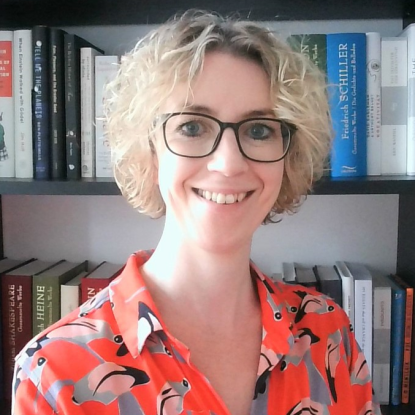
Prof. Frauke Nees, University Medical Centre Schleswig-Holstein, Kiel University, Kiel
Prof. Dr. Frauke Nees is Director of the Institute of Medical Psychology and Medical Sociology at the University Medical Center Schleswig-Holstein, and Professor of Medical Psychology and Behavioural Neurobiology at Kiel University. She obtained her PhD from the University of Trier, supported by fellowships from the Nikolaus-Koch-Foundation and the DFG-funded International Research Training Group program from 2005 to 2008. Subsequently, she served as a Research Group Head, Deputy Professor, and Permanent Deputy of the Scientific Director at the Institute of Cognitive and Clinical Neuroscience at the Central Institute of Mental Health (CIMH) Mannheim, Medical Faculty Mannheim, Heidelberg University, from 2008 to 2020, with a Heisenberg fellowship funded by the DFG from 2018 to 2020. From 2015 to 2017, she worked as a clinical PostDoc at the Medical University Vienna, and at the Clinic of Child and Adolescent Psychiatry and Psychotherapy at CIMH. She is continuously active in PhD, medical doctoral and PostDoc supervisions, serves several commissions of trust (e.g., competitive grants and expert panel (DFG, ERAB, FWO, NWO Veni/Vidi, ERC), equality Committee at Kiel University, board of directors and supervisor in national and international graduate programmes), and obtained several competitive grant funding (EU, BMBF, DFG, Foundations) as PI on topics of brain-behavior mechanisms in mental health, neurobehavioural screening and digital (prevention, intervention) tools, pain, addiction.
11:45 –
Software Platforms for Digital Mental Health: Criteria and Contextual Adaptation (Christine Knaevelsruth, Freie University Berlin)
In the rapidly evolving field of Digital Mental Health, the effectiveness and reach of interventions are significantly influenced by the underlying software platforms. These platforms must not only provide robust functionality for trials and client services but also ensure superior usability and user experience. This talk will explore the critical role of software in digital mental health, emphasizing the need for platforms to accommodate various stakeholders including clients, researchers, therapists, and content managers. We will discuss the importance of aligning these platforms with specific scientific and therapeutic use cases and diverse user groups, taking into consideration regulatory, technical, functional, and usability requirements.
A key initiative of the Digital Mental Health Project Group (DZPG) involves developing a comprehensive criteria list to systematically evaluate and compare existing platforms across DZPG sites and beyond. This effort aims to identify commonalities, differences, and potential synergies, culminating in a dynamic database that facilitates the selection of appropriate tools for particular use cases, thereby enhancing community collaboration and platform development.
Using our platform, “DIRECT,” as a case study, we will demonstrate how a flexible system equipped with an easy-to-use content management system can expedite the creation of intervention prototypes. This is crucial for participatory research, allowing for rapid prototyping and adjustments based on feedback from interviews and focus groups, ensuring a high alignment between client needs and the platform’s offerings. Moreover, DIRECT’s capabilities for intervention tailoring are pivotal for personalized therapy, setting the stage for future automation in tailored interventions. This presentation will outline these processes and the strategic use of digital platforms to maximize the impact of mental health interventions in real-world settings.

Prof. Christine Knaevelsruth, Freie University Berlin
Christine Knaevelsrud is Professor for Clinical Psychological Intervention at Freie University Berlin. She is the director of the Center for Mental Health and Digital Science at the Freie University. She obtained an MSc (University of Amsterdam) and PhD (University of Zurich) in psychology and is a licensed cognitive behavioral psychotherapist. Her work is funded by multiple competitive grants (EU, DFG, BMBF, BMG; AA, DAAD, Foundations) focusing on digital assessment and intervention of psychological disorders as well as transcultural and contextual aspects of mental health.
12:15 – LUNCH
Digital Health at the DZPG
14:00 –
Smartphone technology in therapy research (Johannes Wolf, Ludwig Maximilian University/DZPG)
Advances in therapy research of mental disorders have so far allowed only limited predictions of individual symptom dynamics and effectiveness of therapies. The use of smartphones via Ecological Momentary Assessment (EMA) and Mobile Sensing offers the unique opportunity to investigate therapy outcomes and dynamic interactions between treatment and symptom change on an individual level. Especially in severely affected patient groups such as patients with persistent depressive disorder, there is a need to better understand individual therapy processes in order to personalize treatment approaches and prevent severe outcomes such as suicidal behaviors. Several studies are currently running at our department in this line of research including Change-PDD EMA (RCT comparing specialized psychotherapies in therapy resistant depression), Smart-SI (dynamic prediction of loneliness and suicidality), and Smart-TMS (combining smartphone data and transcranial magnetic stimulation). These clinical use cases combining smartphone technology and psychiatric treatment will be discussed.

Dr. Johannes Wolf, Ludwig Maximilian University, Munich
Johannes Wolf is a researcher and physician at LMU University Hospital Munich as well as speaker of the early career scientists at the German Centre for Mental Health Munich-Augsburg. He studied medicine in Munich, Barcelona, and Paris as a scholar of the German Academic Scholarship Foundation. After graduation Johannes first joined an international consulting firm, where he co-developed digital health strategies, before moving back to medicine. At the Department of Psychiatry and Psychotherapy at LMU Munich his work now focusses on the research and treatment of complex affective disorders including the use of digital technologies such as Ecological Momentary Assessment and Mobile Sensing.
14:30 –
A Case Study of Time-Series Analysis for Patient-Reported Outcome Monitoring in Mental Health Care (Jakob Kaminski, Charité - Universitätsmedizin Berlin/DZPG)
Outpatient care for people with severe and chronic mental illness is complex due to various challenges. One challenge is monitoring of outcomes that are relevant to the patient and engage in self-management. Idiographic patient-reported outcomes offer potential in aiding patients to monitor symptom changes and progress during recovery. However, the extended intervals (2-6 weeks) between outpatient visits, coupled with the intricate interplay of life events, symptoms, and side-effects occurring at shorter time frames (within hours and days), pose challenges in disentangling cause and effect in clinical practice. Daily smartphone-based assessments of patient-reported outcomes, alongside visualization of their trajectories, hold promise in facilitating a more comprehensive symptom evaluation during follow-up appointments. To advance outcome monitoring further, innovative and adaptable statistical models could assist patients and clinicians in better assessing individual data, aligning with the principles of precision psychiatry. As a proof of concept, we employed time-series models on monitoring data to statistically evaluate the impact of events during clinical care. Through Bayesian time-series analysis, we demonstrate the feasibility of quantitatively estimating counterfactuals via synthetic controls, thereby approximating a quasi-causal effect of daily smartphone-based assessments of patient-reported outcomes for individuals. Further research is warranted to transform this proof of concept into a practical decision support system suitable for clinical implementation.

Dr. Jakob Kaminski, Charité – Universitätsmedizin Berlin, Berlin
Dr. Kaminski, a graduate of medicine from Frankfurt, Leipzig, and Paris, completed his doctoral research on imaging techniques at the Max Planck Institute for Human Cognitive and Brain Sciences in Leipzig. He continued his investigations at Charité – Universitätsmedizin Berlin, where he made notable advancements in understanding glutamatergic and dopaminergic neurotransmission changes in patients with schizophrenia. Supported by the Berlin Institute of Health, he was honored with the Early Career Award from the Schizophrenia International Research Society. Dr. Kaminski concurrently pursued specialist training in psychiatry and psychotherapy. Leading Charité’s Digital Psychiatry Research Group since 2022, he led the Recovery Cat project as part of the Digital Health Accelerator, successfully launching it as a spin-off from Charité-Universitätsmedizin in late 2022. Securing financing from the Impact Fund of the Investitionsbank Berlin co-financed with resources from the European Regional Development Fund (EFRE) and private funds, he now serves as managing director, responsible for strategy, product development, and medical-scientific assessment. Through Recovery Cat, Dr. Kaminski aims at sustainably advance the a patient-centered digitization of psychiatric care.
15:00 – COFFEE BREAK
15:30 –
Recent advances in developing, evaluating and implementing ecological momentary interventions for improving mental health and psychological well-being (Ulrich Reininghaus, Mannheim Central Institute of Mental Health)
In recent years, the field of digital mental health has received increasing attention in national and international research. However, a key challenge remains to harness more fully the translational chain from bench to bedside or, much rather, to living environments and real-world settings. This appears ever more important, given that transferability, uptake, scalability, sustainability and, hence, public health impact of evidence-based digital innovations in mental health research remains limited. This talk will provide an overview of new developments and challenges in ecological translation of digital interventions in public mental health provision, with a particular view to developing, evaluating, and implementing adaptive ecological momentary interventions in youth as a priority target population. Ecological translation pursues the strategy of a) identifying momentary risk and protective mechanisms in diverse socio-environmental contexts and settings across the continuum of mental health and, b) translating this into novel digital interventions and services – ecological momentary interventions (EMI) in particular – that target these mechanisms, contexts and settings in real time and in individuals’ living environments. While promising in scope, particular attention needs to be paid to configuring ecological momentary interventions in such a way as to include, rather than marginalize further, vulnerable populations, and reduce, rather than accelerate, social and ethnic inequalities in health. This and other challenges will be discussed in the light of directions for future research.
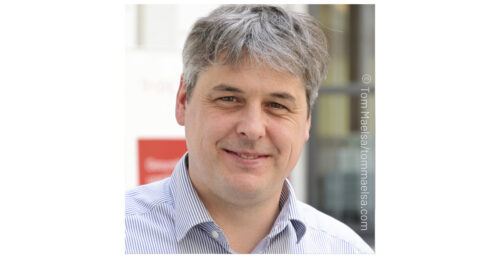
Prof. Ulrich Reininghaus, Central Institute of Mental Health, Mannheim
Ulrich Reininghaus is Professor and Head at the Department of Public Mental Health, Central Institute of Mental Health (CIMH), Mannheim, and a Visiting Professor at the Health Service and Population Research Department, Institute of Psychiatry, Psychology and Neuroscience, King’s College London. His main research interests are in the ecological translation of evidence-based innovations in public mental health provision using innovative participatory, evaluation, and implementation science frameworks and cutting-edge digital technology for delivering evidence-based mental health promotion, mental disorder prevention and mental health care. To this end, his work seeks to identify momentary risk and protective mechanisms, socio-environmental contexts and settings across the continuum of mental health and, in a next step, translate this into novel digital interventions and services – ecological momentary interventions (EMI) in particular – that target these mechanisms, contexts and settings in real time and in the real world.
Professor Reininghaus was awarded a Ph.D. by Queen Mary University of London in 2011. He trained as a postdoc at the Department of Psychiatry, University of Cambridge, and the Institute of Psychiatry, King’s College London. His interest in innovative digital assessment and intervention then led him to work at the Department of Psychiatry and Psychotherapy, Maastricht University, where he was last appointed as Associate Professor before he moved to CIMH in 2018 to head the newly established Department of Public Mental Health. Professor Reininghaus has been awarded several competitive fellowships for his work, including by the UK National Institute for Health Research, the Netherlands Organisation for Scientific Research (NWO), and most recently a Heisenberg Professorship by the German Research Foundation (DFG). His current work is funded by several grants, including from the EU, ZonMW, BMBF, DFG, and MWK.
16:00 –
Closing Remarks for the AI Summit (Hu Zhou, Fudan University)

Hu Zhou, Vice President of Fudan University
ZHOU Hu is Vice President of Fudan University, where he graduated with a Doctor of Science degree in Information Science and Engineering. Before he took the current position in August 2023, he has been working in various administrative positions at Fudan University and hence gained extensive experience in university administration and management. As Vice President of Fudan University, he is in charge of talent-related work at the university.
周虎,复旦大学党委副书记(根据国合处建议,出访称Vice President),复旦大学信息科学与工程学院电路与系统专业博士。他具有丰富的学校行政管理经验,自2023年8月起担任复旦大学党委副书记,分管学校人才等工作。
16:10 –
Final panel discussion: Plans and perspectives: AI in Mental Health (DZPG, EBRAINS, environMENTAL, Fudan University)
Speakers of Day 2:
- Prof. Gunter Schumann, PONS, Charité – Universitätsmedizin Berlin, Berlin & Fudan University, Shanghai
- Prof. Petra Ritter, Charité – Universitätsmedizin Berlin, Berlin
- Prof. Mel Slater, University of Barcelona
- Prof. Frauke Nees, University Medical Centre Schleswig-Holstein, Kiel University, Kiel
- Prof. Christine Knaevelsruth, Freie University Berlin
- Dr. Johannes Wolf, Ludwig Maximilian University, Munich
- Dr. Jakob Kaminski, Charité – Universitätsmedizin Berlin, Berlin
- Prof. Ulrich Reininghaus, Central Institute of Mental Health, Mannheim
- Hu Zhou, Vice President of Fudan University
16:45 – ADJOURN
Storage of registration data:
The registration data for this event is stored on servers located in Germany. Please note that this information will be stored until the day after the event and will then be deleted.
We would like to assure you that we process and protect your data in accordance with applicable data protection regulations. For questions and/or comments on the storage of registration data please contact us by using the following contact details:
concentris research management gmbh
Ludwigstr. 4
82256 Fürstenfeldbruck
Germany
Website: www.concentris.de
Email: contact@concentris.de
Phone number: +49 (0)8141 625 285 84

